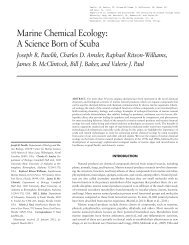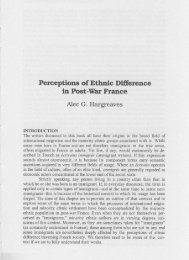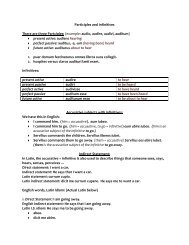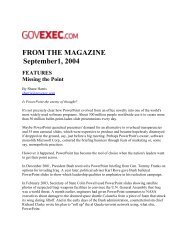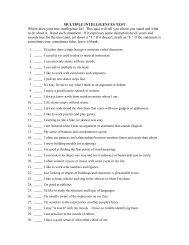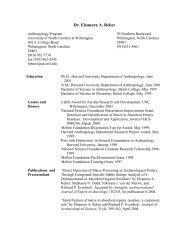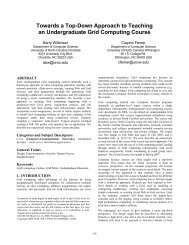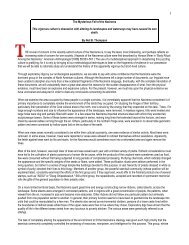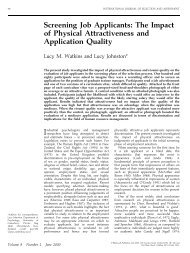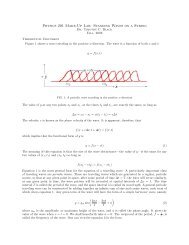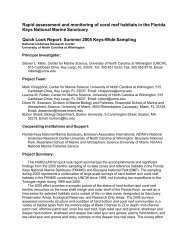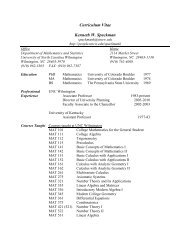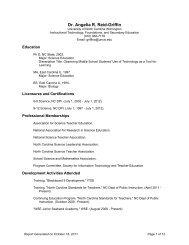Latin 102 Examinatio Prima Part 1: Vocabulary Part 2: Vocabulary
Latin 102 Examinatio Prima Part 1: Vocabulary Part 2: Vocabulary
Latin 102 Examinatio Prima Part 1: Vocabulary Part 2: Vocabulary
Create successful ePaper yourself
Turn your PDF publications into a flip-book with our unique Google optimized e-Paper software.
-arum is a genitive plural ending – enough said. poeta, though, is one of the rare 1 st declension<br />
masculine words.<br />
hāc f. s . abl.<br />
This is an adjective (demonstrative adjective, to be specific) so it agrees with something. urbe –<br />
the –e is usually an ablative ending, and it follows in, which takes the ablative. –a is a typical<br />
vowel for feminine adjectives, so go with that.<br />
vitiōrum n. pl. gen.<br />
-orum is genitive plural. Is it masculine or neuter? You just have to know it’s vitium not vitius.<br />
saturam f. s . acc.<br />
-am is accusative singular 1 st declension, i.e. almost always feminine.<br />
nātūra f. s . nom.<br />
natura, -ae f or naturum, naturi neuter. The first; feminine words are more common than<br />
neuter anyway.<br />
mē m. f. s . acc.<br />
In this occurrence it’s masculine, but me can be either gender. “Me,” by definition singular. no<br />
reason for it to be ablative so it is accusative.<br />
librō m. s . abl.<br />
object of in, -o is a common ablative ending, and you probably remember that “book” is<br />
masculine.<br />
facta n. pl. nom.<br />
is it facta, –ae f or factum, -i n? If you remember the dictionary form, you will realize that it is<br />
neuter plural.<br />
hominum m. f. pl. gen.<br />
The infamous –um genitive plural ending for third declension words.<br />
īnsidiae f. pl. nom.<br />
from the –ae form, you know it’s first declension, but which occurrence of –ae? Is there any<br />
reason for it to be dative or ablative? No? Is the verb plural which likely makes it the subject?<br />
Yes.<br />
<strong>Part</strong> 4: Paradigms<br />
Give the masculine/feminine forms of fortis, forte, brave.<br />
Case Singular Plural<br />
nom. fortis fortes<br />
gen. fortis fortium<br />
dat. forti fortibus



